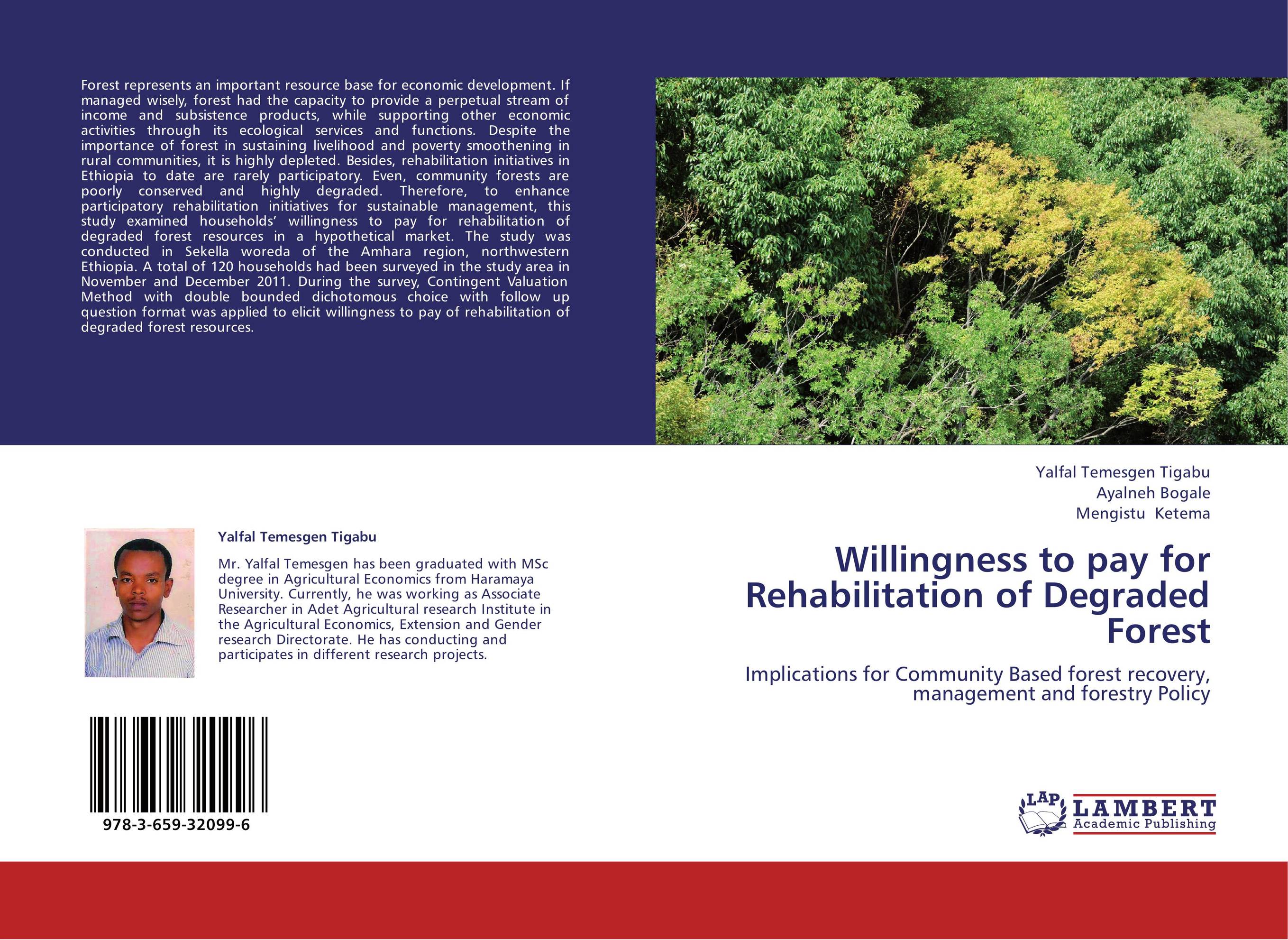| Поиск по каталогу |
|
(строгое соответствие)
|
- Профессиональная
- Научно-популярная
- Художественная
- Публицистика
- Детская
- Искусство
- Хобби, семья, дом
- Спорт
- Путеводители
- Блокноты, тетради, открытки
Willingness to pay for Rehabilitation of Degraded Forest. Implications for Community Based forest recovery, management and forestry Policy

В наличии
| Местонахождение: Алматы | Состояние экземпляра: новый |

Бумажная
версия
версия
Автор: Yalfal Temesgen Tigabu,Ayalneh Bogale and Mengistu Ketema
ISBN: 9783659320996
Год издания: 2013
Формат книги: 60×90/16 (145×215 мм)
Количество страниц: 92
Издательство: LAP LAMBERT Academic Publishing
Цена: 30926 тг
Положить в корзину
| Способы доставки в город Алматы * комплектация (срок до отгрузки) не более 2 рабочих дней |
| Самовывоз из города Алматы (пункты самовывоза партнёра CDEK) |
| Курьерская доставка CDEK из города Москва |
| Доставка Почтой России из города Москва |
Аннотация: Forest represents an important resource base for economic development. If managed wisely, forest had the capacity to provide a perpetual stream of income and subsistence products, while supporting other economic activities through its ecological services and functions. Despite the importance of forest in sustaining livelihood and poverty smoothening in rural communities, it is highly depleted. Besides, rehabilitation initiatives in Ethiopia to date are rarely participatory. Even, community forests are poorly conserved and highly degraded. Therefore, to enhance participatory rehabilitation initiatives for sustainable management, this study examined households’ willingness to pay for rehabilitation of degraded forest resources in a hypothetical market. The study was conducted in Sekella woreda of the Amhara region, northwestern Ethiopia. A total of 120 households had been surveyed in the study area in November and December 2011. During the survey, Contingent Valuation Method with double bounded dichotomous choice with follow up question format was applied to elicit willingness to pay of rehabilitation of degraded forest resources.
Ключевые слова: contingent valuation method



